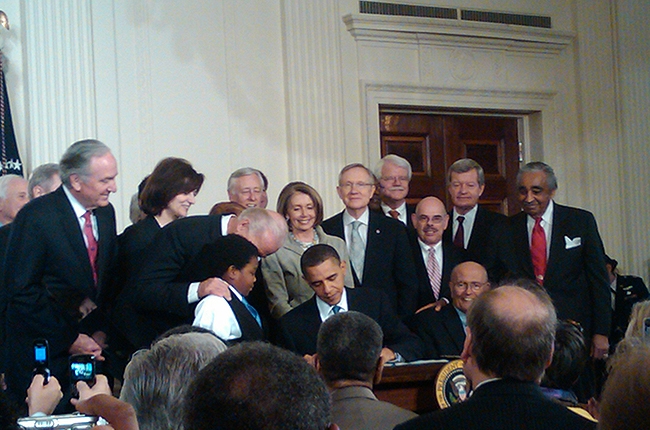
With the so-called Obamacare law taking effect Jan. 1, the live biz is examining the impact on its many part-time employees.
The vast majority of employees on tour aren’t the responsibility of the artist or the promoter/producer, but rather the vendors contracted to provide sound, lights, staging and other services. Veteran music business accountant Bill Zysblat, who has run the books on some of the biggest tours of all time, says, “Very often the touring company will not have enough employees to comply.”

THIS STORY IS FROM THE MOST RECENT ISSUE OF
BILLBOARD GET YOUR COPY HERE AND SUBSCRIBE HERE
Still, Zysblat doesn’t see a huge impact or expense. “I don’t think the health-care cost increases under Obamacare will affect touring costs as much as even the changes in the price of fuel,” he says.
In that sense, for a mega tour, the the Affordable Care Act’s (ACA) impact on tour budgets could be “pretty dramatic,” Zysblat says.
Rubenstein says he has been researching the ACA with employment consultants because the law is “somewhat vague” as it relates to part-timers, who work fewer than 30 hours per week. A key component is the “look-back period,” a review of hours that determines an employee’s average hours per week and whether he or she should be considered full or part time.
Most arenas are less busy in summer, when professional sports teams are inactive and more tours are outdoors — logically, fewer employees would qualify for health-care benefits from employers. The employer is allowed to choose a look-back period ranging from three to 12 consecutive calendar months to determine each employee’s average weekly hours. So it would behoove an arena to select summer for its look-back period, whether the employer is the building or a contractor hired to provide and schedule labor for events.
The latter option is one that many venues will surely take, if they don’t subcontract staffing already. The contractor can then assume the cost and administration of health care when necessary, but those services aren’t cheap, so indirectly the venue will have to pass along the cost of health care anyway. So maybe the $9 beer becomes $10.
The intention of Obamacare isn’t employees working fewer hours, but that will inevitably be the result in some cases. “We have part-time employees that are now going to be eligible for health care if they work over [an hourly] baseline,” says Allen Johnson, director of facilities for the City of Orlando, Fla. He sees two ways to deal with the ACA: “You can hire more employees [to] spread the time out [across multiple staff], which kind of defeats the purpose of what [the new law is] trying to do,” he says. “Or you can subcontract those areas out to another company and let them worry about it.”
Whatever the course of action, employees must be kept informed. Employers must provide a written notice to all employees, both full and part time, regarding the coverage options available to them through the “exchange marketplace,” and because open enrollment for health insurance through the marketplace begins in October for coverage to start Jan. 1, the notice must be provided to employees on or before Oct. 1, and for each new employee at hiring.
Employers can view two model notices prepared by the Department of Labor at dol.gov/ebsa-one for employers that don’t offer a health plan and one for those who do.

 Use promo code ‘BIZ13’ to get a special discount.
Use promo code ‘BIZ13’ to get a special discount.